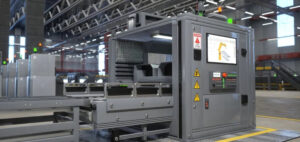Introduction
Driven by the adoption of modern technologies, the manufacturing sector is undergoing an impressive transformation. The integration of these advanced systems is reshaping how products are designed, produced, and delivered, making manufacturing more efficient, sustainable, and responsive to changing market needs. Technologies like artificial intelligence (AI), the Internet of Things (IoT), robotics, 3D printing, and advanced data analytics are at the forefront of this industrial revolution, often referred to as Industry 4.0. These innovations are not only enhancing productivity and cutting costs but also fundamentally altering the competitive landscape of the manufacturing sector.
In this article, we will explore some of the most impactful modern technologies implemented in today’s manufacturing industry and their implications for the future.
Automation and Robotics
The Role of Robotics in Modern Manufacturing
One of the most significant advancements in manufacturing is the implementation of automation and robotics. Robotics have become a cornerstone of modern production lines, enhancing both speed and precision. Unlike traditional manufacturing that relied heavily on human labor for repetitive tasks, modern automated systems are capable of handling these processes with greater efficiency and accuracy.
Benefits of Automation and Robotics
- Improved Efficiency: Robots can work continuously, operate in hazardous environments, and handle complex tasks without fatigue, reducing production errors and workplace accidents.
- Advanced Capabilities: Industrial robots are now equipped with advanced sensors, AI, and machine learning algorithms that allow them to perform more sophisticated functions.
- Collaboration with Humans: Collaborative robots, or “cobots,” are designed to work alongside human workers, augmenting their capabilities rather than replacing them.
- Cost Reduction: Automation reduces the cost of production by lowering labor costs and increasing throughput.
The Internet of Things (IoT)
The Impact of IoT on Manufacturing
The Internet of Things (IoT) is revolutionizing the manufacturing industry by connecting machines, devices, and systems to create smart factories. IoT-enabled devices can collect, analyze, and share data in real time, providing manufacturers with unprecedented visibility into their operations.
Benefits of IoT in Manufacturing
- Predictive Maintenance: By collecting data from sensors embedded in machines, manufacturers can monitor the health of equipment and predict when a failure is likely to occur.
- Real-Time Monitoring: IoT solutions enable companies to monitor production processes, equipment performance, and supply chain activities from a central location.
- Quality Control: Real-time data can be used to detect anomalies in the production process, allowing for quick corrective actions before defects occur.
Artificial Intelligence (AI) and Machine Learning
AI’s Role in Manufacturing
Artificial intelligence (AI) and machine learning are playing an increasingly important role in the manufacturing industry. AI-powered systems are capable of analyzing vast amounts of data generated by IoT devices and other sources to optimize production processes, improve decision-making, and increase overall efficiency.
Benefits of AI in Manufacturing
- Enhanced Product Design: AI is being used to enhance product design, forecast demand, and manage supply chains more effectively.
- Process Optimization: Machine learning models can analyze historical production data to identify patterns and recommend adjustments to optimize machinery performance.
- Supply Chain Management: AI helps manufacturers forecast demand with greater accuracy, optimize inventory levels, and reduce lead times.
3D Printing (Additive Manufacturing)
The Rise of Additive Manufacturing
3D printing, also known as additive manufacturing, is transforming how products are designed and manufactured. Unlike traditional manufacturing methods that rely on subtractive processes (cutting, drilling, etc.), 3D printing builds products layer by layer using digital models.
Benefits of 3D Printing
- Customization and Precision: 3D printing allows manufacturers to create highly customized products with intricate designs.
- Material Efficiency: Reduces material waste and shortens the time to market for new designs.
- Applications Across Industries: Aerospace, automotive, and healthcare industries leverage 3D printing for precision and customization.
- Rapid Prototyping: Enables manufacturers to test and refine designs more quickly and at a lower cost.
Advanced Data Analytics
The Power of Data in Manufacturing
Data analytics is another critical technology that is transforming the manufacturing industry. With the vast amounts of data generated by connected machines, sensors, and production systems, manufacturers are leveraging advanced analytics to gain insights into their operations and make data-driven decisions.
Benefits of Data Analytics
- Identifying Inefficiencies: Advanced analytics helps pinpoint inefficiencies in production processes.
- Supply Chain Optimization: Improves supply chain management and enhances customer satisfaction.
- Predictive Analytics: Forecasts future trends and outcomes, allowing manufacturers to proactively address issues before they become major problems.
Cloud Computing
Cloud Solutions for Manufacturing
Cloud computing has become an essential component of modern manufacturing. Cloud platforms allow manufacturers to store and access large amounts of data remotely, collaborate across different locations, and scale their operations quickly.
Benefits of Cloud Computing
- Enterprise Resource Planning (ERP): Cloud-based ERP systems provide real-time visibility into production activities, inventory levels, and supply chain operations.
- Manufacturing Execution Systems (MES): Enhances coordination across different departments and enables quick response to changes in demand or production requirements.
- Cost-Effectiveness: Eliminates the need for on-premises infrastructure, offering greater flexibility and cost savings.
Enhancing a Productive Future
The implementation of modern technologies in the manufacturing industry has revolutionized how companies operate, boosting efficiency, reducing costs, and enhancing product quality. From robotics and automation to AI, IoT, and 3D printing, these innovations are driving the fourth industrial revolution and reshaping the future of manufacturing.
Key Takeaways
- Embrace Innovation: Manufacturers must stay at the forefront of adoption to remain competitive in an increasingly digital and globalized market.
- Leverage Data and AI: Data-driven decision-making and AI-powered insights are essential for operational efficiency.
- Sustainability and Efficiency: Modern technologies are enabling more sustainable and resource-efficient manufacturing processes.
As these technologies continue to evolve, those that embrace these advancements will be well-positioned to lead the next wave of industrial innovation.

Automation and RoboticsAutomation and Robotics